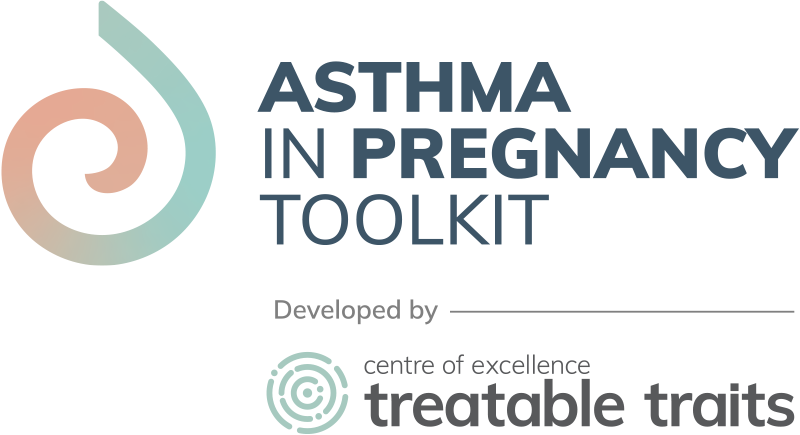Many women realise the need to manage their asthma better when they become pregnant as they understand that their asthma no longer affects just them (Jenkins 2005). Although not universal for all women with asthma, recent Australian research has demonstrated that pregnant women will often lack the skills and knowledge to better manage their asthma, with only three in ten having correct medication knowledge, two in ten having optimal inhaler technique and only one in ten possessing a written action plan (Robijn et al. 2019).

Maximising opportunities for women to access asthma education during pregnancy is recommended. Interventions should include:
- Education about asthma physiology (eg. Severe Asthma Toolkit)
- Ensuring an understanding of the role of inhaled medications, with a particular focus on safety of asthma medication during pregnancy
- Optimisation of inhaler technique
- Self-monitoring asthma symptoms and peak flows (when used)
- Ensuring an understanding what to do during an asthma flare up or attack and the use of a Written Asthma Action Plan
- Women should have their Written Asthma Action Plan checked and updated if required, when pregnant and after any significant changes in prescribed treatment
- Adherence aiding strategies for improved use of asthma medications
- Importance of regular medical review (Gibson et al. 2003, Bender & Rand 2004).
- Patients and/or their families can also contact Asthma Australia’s 1800 ASTHMA (1800 278 462) telephone/virtual education and information service (free). More information about the service can be found here.
